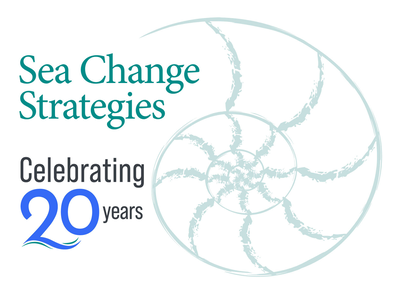AI wrote this headline. Navigating the Trust Gap: Addressing Concerns About AI in Nonprofits
I’ve said jokingly that I wish I could have retired before I had to figure out artificial intelligence’s role in non profit fundraising.
Donors may share my apprehension.
According to a new study on donors and artificial intelligence, there are signs that, for now, use of the technology could negatively impact some donors’ support.
Some key findings:
- 31% of respondents said they would be less likely to donate to charities that used A.I. Still, 34% said A.I. use would not affect their donations either way and 9% said they would be more likely to donate.
- 60% of respondents cited a lack of human touch in interactions as well as data-security risks as their top concerns for A.I. use by charities.
- More than 40 percent also said they were significantly concerned by the prospect of A.I. adoption replacing humans and resulting in job losses in the charity sector.
Despite these concerns, non profits must balance the efficiencies A.I. can unleash with donor trust. Further, I anticipate views will change as adoption of A.I. becomes more commonplace.
So what can you do to reassure donors in the meantime? The study’s authors suggest:
- Creating and sharing clear guidelines on how A.I. is being used, including how the technology factors into decision making and what ethical considerations were made
- Prioritizing the use of A.I. behind the scenes with a focus on operational efficiency
- Clearly communicating how A.I. use will add value to the organization instead of replacing humans, including any impacts on staffing
- Developing and communicating strategies to protect data privacy
- Providing users with mechanisms to opt-out of A.I. usage when possible
- Sharing real-life examples of how A.I. use is improving the organization’s efficiency or detecting fraud or other ways of tangible impact

I asked ChatGPT to write a blog post about lack of trust in non profits that use AI.
On a more hands-on note, if you’ve been an A.I. wallflower, I suggest orienting yourself personally to A.I. as much as possible. A few places to start:
- Play around with ChatGPT for fun. Don’t be too serious. Start by asking for suggestions to spice up the roasted eggplant you are planning to make for dinner or ask for recommendations on what spy novel you should read next.
- On the work front, start small. Use Zoom’s AI companion during your next meeting and see what you think of the recap and action items.
- Read this essential case study from Frank O’Brien about using A.I. to sharpen your message and practice with an upcoming copywriting project.
- Learn what others in the non profit space are doing.
Now that I’m getting more comfortable with A.I., I’m less inclined to “not want to figure it out” and more inclined to “want to figure it out right.”
